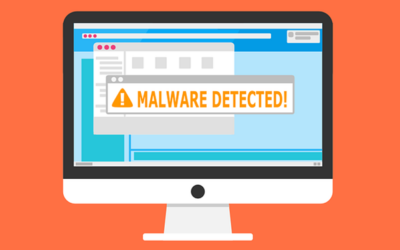 Most small businesses only use a few systems, leading many to consider data backups to be an extra, unnecessary cost. Business operations may have run smoothly and uninterrupted for a long time, but what happens after a natural disaster breaks hardware or a disgruntled employee deletes an important file? Losing important business data can be a disaster for an organization, even if for a short period.
Most small businesses only use a few systems, leading many to consider data backups to be an extra, unnecessary cost. Business operations may have run smoothly and uninterrupted for a long time, but what happens after a natural disaster breaks hardware or a disgruntled employee deletes an important file? Losing important business data can be a disaster for an organization, even if for a short period.
Any data loss can result in devastating consequences that will ultimately impact income. So let’s take a look at what can cause a data loss in the first place:
WAYS DATA LOSS CAN OCCUR
Natural Disasters
Hurricanes, floods, fires, even terrorist attacks can affect your servers and systems and result in data loss. Many SMBs claim that they have plans to ensure that technical programs or accidental data deletion are protected. However, natural disasters are often unaccounted for.
Employee Errors or Malicious Intent
Your employees may also contribute to data loss unwittingly or on purpose. For example, someone may accidentally delete the final version of a file instead of the older one. Someone may delete an important lead list on their last day at work out of spite. No matter what the reason, the data loss will cause your business to suffer.
Broken Hardware
A physical reason for data loss is corrupted hardware. If your hardware breaks, sometimes it becomes impossible to fix and retrieve the data.
THE CONSEQUENCES OF DATA LOSS
It is extremely difficult for an SMB to bounce back from a data loss event. Boston Computing reports that 60% of SMBs who lose their data are likely to close shop within six months.
Data Loss Harms Brand Image
Data loss may result in severe damage to your brand as clients may no longer trust you because you cannot keep up with business demands. SMB brand presence may take years to build, but data loss can wipe its reputation in seconds.
Data Loss Can Lead to Legal Action and Penalties
When data loss occurs, it’s not just about your business’s data – it can also include data that pertains to third parties like your customers, vendors, and prospects. If the organization is in the professional sector, you may have to adhere to compliance and regulatory requirements about the data getting handled. In such cases, failure to complete a HIPPA risk assessment may result in fines. Data loss makes these organizations vulnerable to lawsuits from third parties and also risks legal penalties.
BENEFITS OF ONLINE DATA BACKUPS
Online data backups help businesses by storing data in the cloud. That means no matter what happens on-site, data in the cloud stays safe. So your data is not affected by server crashes, accidental deletion, or even extreme events like natural disasters.
You get the following additional benefits by choosing the cloud to backup data:
Anytime-Anywhere Access to your Data
Unlike data on local machines, the cloud gives you access to your data with the internet and the intranet in some cases anytime-anywhere. This is a great feature if you have a varied workforce structure where individuals work from home or in different offices.
Responsibility of Data Security
When you opt for the cloud, most of the responsibility of data security shifts to your cloud service provider, that’s one less thing for you to worry about.
Scalability
The cloud lets you rent as much or as little space as you want. The reason is that when in the cloud, you are sharing space with others. Therefore, it is not like an investment in local machines and servers, where you own all the space and may have to buy new ones for even a marginal increase in space requirements.
The cloud is especially beneficial if you are in a scenario where you have seasonal staff (such as a CPA) to support the workload during peak season.
Cost Savings
Overall, the cloud works out to be cheaper. You pay for only what you use because you are sharing space with others. You can get just as much or as little space as you need in contrast to investing in local machines and servers.
Conducting data backups is a highly recommended practice, but online data backups in the cloud are even better. So get in the cloud – it’s the smart way to safeguard your data. Wahaya IT is here to help you manage the right solutions to protect your business data.

































